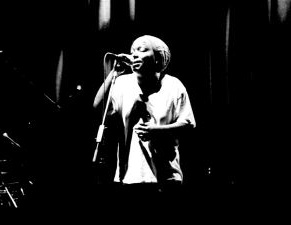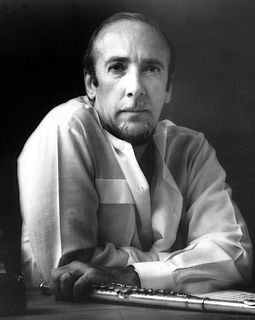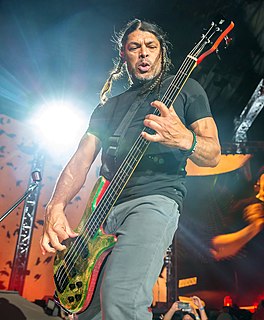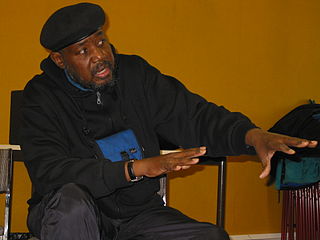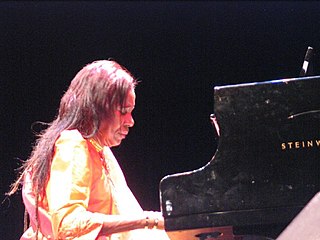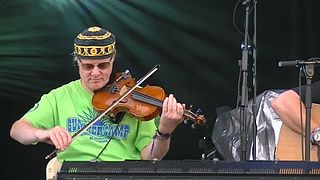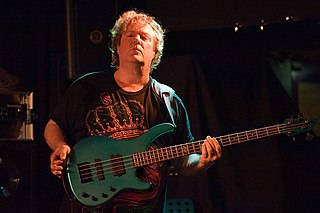A Quote by Meshell Ndegeocello
My father was a jazz tenor sax player. He played in a lot of big bands. So I had that sound around me all the time. The first record that really caught my ear was Clifford Brown's 'Brownie Eyes.' I grew up listening to John Coltrane and Illinois Jacquet. This is where I come from... I love improvisational music.
Related Quotes
We had Bob's [Gordon] records, and he's on Clifford Brown's first record as a leader. I believe it was Clifford Brown's first record as a leader and had the original versions of Daahoud and Joy Spring that were arranged by Bob's best friend, the West Coast tenor player named Jack Montrose, who I later met.
My thing was, I loved music. I played music: I played the saxophone. So the little bit of music knowhow I had, I tried to implement that in every thing I did, from my style, my cadence, the way I tried to pause and stagnate it; that all came from John Coltrane and listening to jazz albums. Trying to rhyme like a jazz player.
I love jazz. So to me, there are two main types of jazz. There's dancing jazz, and then there's listening jazz. Listening jazz is like Thelonius Monk or John Coltrane, where it's a listening experience. So that's what I like; I like to make stuff that you listen to. It's not really meant to get you up; it's meant to get your mind focused. That's why you sit and listen to jazz. You dance to big band or whatever, but for the most part, you sit and listen to jazz. I think it comes from that aesthetic, trying to take that jazz listening experience and put it on hip-hop.
Early on, before rock 'n' roll, I listened to big band music - anything that came over the radio - and music played by bands in hotels that our parents could dance to. We had a big radio that looked like a jukebox, with a record player on the top. The radio/record player played 78rpm records. When we moved to that house, there was a record on there, with a red label. It was Bill Monroe, or maybe it was the Stanley Brothers. I'd never heard anything like that before. Ever. And it moved me away from all the conventional music that I was hearing.
Sonnymoon and Quadrants are a couple of bands that really inspire me in terms of the melodics of things and certain tones and just what feels good. It takes me back to the type of music that I grew up on in my household. We played a lot of gangsta rap, but we also played a lot of oldies, and I think that mix is part of what inspires my sound.
Well, you know, the first step I took was to drop the alto and baritone and concentrate on tenor exclusively, a decision I've never really looked back on with any regret. Another thing was that I was 17 when I moved up there, and my listening had really focused on freer music in the previous couple of years- Coltrane was playing with his expanded group, and everyone was listening closely to that, and we were into Shepp and Ayler as well.
It was so interesting, when [John Coltrane] created A Love Supreme. He had meditated that week. I almost didn't see him downstairs. And it was so quiet! There was no sound, no practice! He was up there meditating, and when he came down he said, "I have a whole new music!" He said, "There is a new recording that I will do, I have it all, everything." And it was so beautiful! He was like Moses coming down from the mountain. And when he recorded it, he knew everything, everything. He said this was the first time that he had all the music in his head at once to record.
My dad was a jazz fan and he used to have lots of old 78s, so I grew up with big jazz bands and the likes of Duke Ellington and Count Basie - although I really liked show tunes from those big musicals as well. I've always kept my ears open, as it were, when it comes to music. It doesn't matter to me what type of music it is. If I like it, I'll listen to it.
I have learned as much about writing about my people by listening to blues and jazz and spirituals as I have from reading novels. The understatements in the tenor saxophone of Lester Young, the crystal, haunting, forever searching sounds of John Coltrane, and the softness and violence of Count Basie's big band - all have fired my imagination as much as anything in literature.
